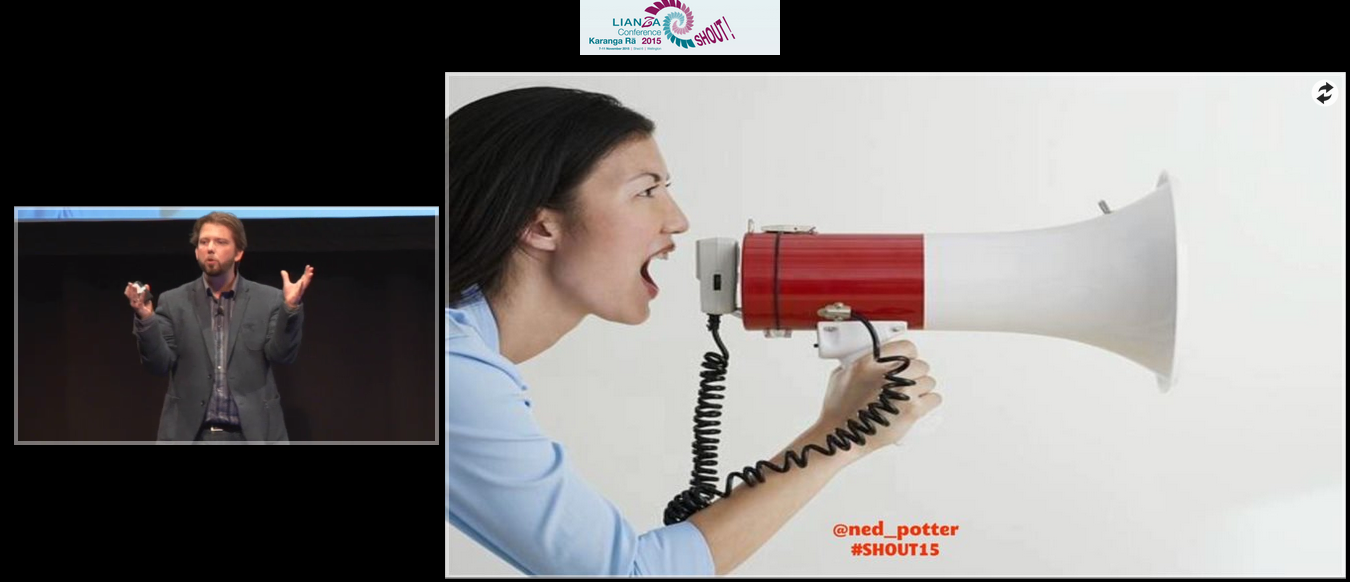This serves two purposes. Firstly it sits online (and embedded in various places on our website and Libguides) for the students to interact with in their own time. The students appreciate this because the information about the library, of which there is a LOT, is arranged geographically. This level of context makes it easier to get to grips with. The non-linear qualities of Prezi mean that if, for example, the student wants to know what's on the second floor of the Fairhurst building, they just click on the second floor of the Fairhurst building. (Try it in the map above!) It goes straight there - rather than having to skip a bunch of slides or scroll through a bunch of text or sit through a video. Talking of video, I've embedded about 10 videos in this Prezi at appropriate points - anyone who's ever tried to embed videos in PowerPoint know what a thankless task that is... In Prezi you just copy and paste in the YouTube URL and it does the rest.
The second purpose is to use it in Induction talks. We create department-specific versions of it - these tend to be far less detailed than the full version above, covering less ground, but adding in more subject detail: the specific whereabouts of a department's books and journals, for example, or details of the Special Collections we have which are most relevant to them. Here's a History of Art example that I used this year with my Postgraduates.
As Prezi users will know, the order in which your presentation visits the various elements on the canvas is known as the 'Path'. It's easy to take things out of your path WITHOUT taking them out of your presentation - meaning you can deliver a talk for whatever time-slot you have, but when you give people the link the presentation afterwards they can see the full version with much more detail left in.
So for me, the ability to take a floor-plan PDF and make it interactive, the ability to contextualise our YouTube videos, and the ability to make copies of the map which we customise for each department and presentation length, are all good reasons to justify using Prezi.
If you want to take your own floor-plans and turn them into interactive maps, it's really not that complicated - I've written a guide to that here. Student feedback is great so it's worth doing - also, we often get academics giving us very good feedback and starting conversations about it, so it's a chance to boost our credibility in departments more generally.
2. Presentations with a focus on visual content
Another History of Art example here - the presentation I use for a session on Finding Images with my HoA 1st years. Because it's all about imagery, a very visual presentation makes sense. It also helps to make some of the tedious step-by-step instructions I have to cover slightly more engaging. I don't know why but I quite like the 70s wallpaper aesthetic of this Prezi template, too.





